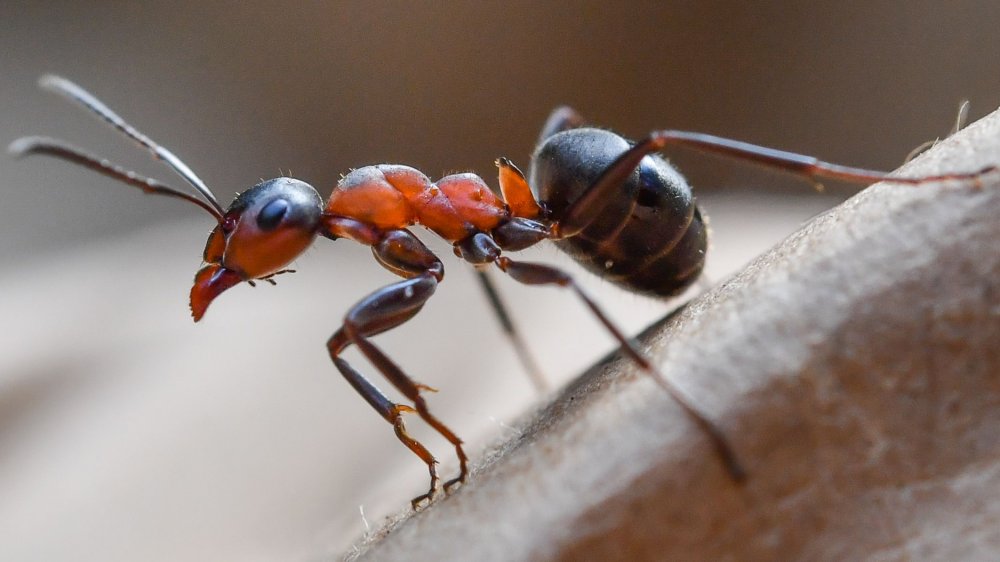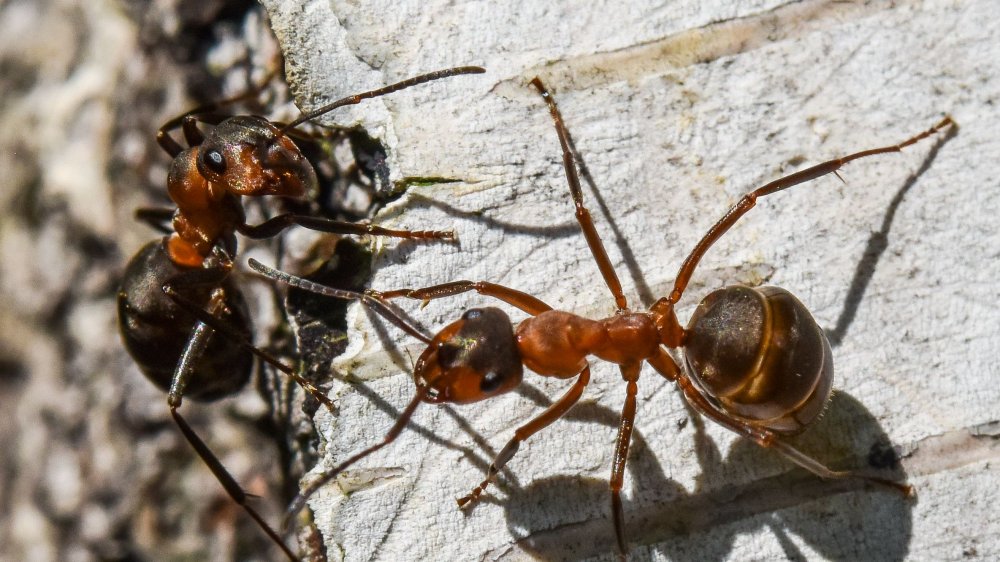A Million Cannibal Ants Escape From Nuclear Bunker In Poland
In 2013, as Global News tells us, Polish insect researchers discovered a peculiar "lost" ant colony in a nuclear bunker. In 2016, they publicized its story. And in 2019, they verified the secret behind the colony's survival: Cannibalism. Unfortunately, they discovered this a bit too late, as they had already unleashed a million cannibalistic nuclear bunker ants upon the unwary world.
Luckily, the reality of the situation is a bit less catastrophic than that sentence makes it appear. It all started when a large wood ant colony made its nest in a ventilation pipe of an abandoned Soviet-era bunker in Poland. The colony's worker ants did what worker ants do, and walked up to the surface to collect materials. Unfortunately, the path was a slippery slope, and the workers didn't always make it back. Some of them lost their footing and fell down, down, down — deep into the dark, inescapable concrete abyss below.
The rise and fall of the nuclear bunker cannibal ant colony
Many of the fallen workers died. However, up to a million survived. Still, they were now separated from their colony, unable to escape the pit, and without a source of food ... apart from the bodies of their fallen comrades, and the "steady stream" of other workers that kept falling down. So, the makeshift nuclear bunker colony did what it had to survive, and feasted on the corpses of their fellow ants. For years. By the time scientists found them, there were roughly two million dead ants in the bunker along with the live ones, who were happily constructing a mound.
Impressed by the "lost" colony's ingeniousness, the researchers decided to help the cannibal ants rejoin their original colony by constructing a small "boardwalk" that allowed them to climb back in the nest. While this may seem like an ant horror movie in the making, most of the corpse-munching ants were seemingly just happy that their slumming days were over. They climbed back to their old neighborhood and resumed their life in the nest without issue, showing zero aggression toward their fellow ant. Still, we bet the "lost" ants have some pretty wild stories to tell at the ant-bar once their wood-hauling shift is over.

